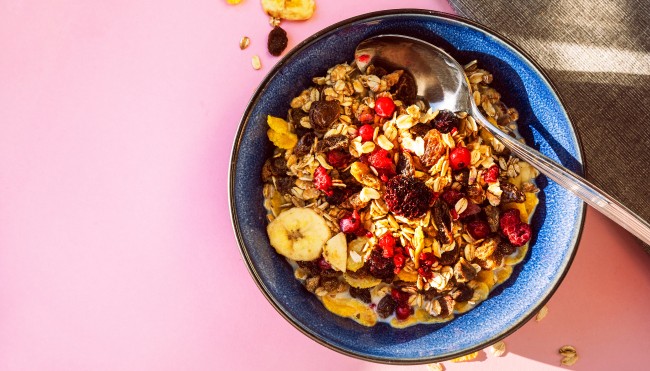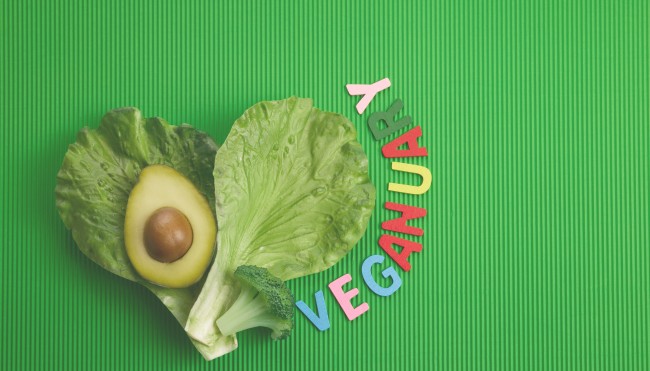Discover which Plant-Based Milk is good for you AND the planet!
As consumers’ awareness about our health and the environment rises, people are turning to plant-based alternatives instead of the traditional dairy-based milk. Whether it’s because of lactose intolerance, a vegan diet, or a conscious environmental choice, the demand for a plant-based substitute is rapidly growing.
In 2019, 23% of Brits are consuming vegan milks with the top buyers between the ages of 16 to 24 years of age according to Mintel, a market research firm. As the demand grows, so does the selection. Soy, rice, almond, coconut, and oat are just a few on the market. The choices available are aplenty and perhaps overwhelmingly so.
So… how do I choose the right one for me?
There are many factors to take into account when comparing these dairy-free options. Here are a few to consider: added sugar, calories, harmful additives, and the environment. Therefore, it depends on what you’re after, or rather, what you’re trying to avoid.
Does your favorite plant-based milk have added sugar?
Watch out! Many manufacturers will use words like, original or plain, however this doesn’t ensure that sugar wasn’t added! If you see the words “Barista Blend,” it’s also just a sneaky way for added sugar to go unnoticed. Look for “unsweetened’ or simply look for “0 g of sugar” in the ingredients. Manufacturers often add sugar to some vegan milks more than others to make the taste more appealing.
How much are you drinking daily?
If you’re drinking big quantities, be aware of your calorie intake. Almond and coconut milk, for example, contain about half the calories of oat or rice milk. However, if you’re only adding milk to your tea or coffee, perhaps those extra calories aren’t so bad.
What unknown additives may be causing you harm?
If you think you are opting for the healthier choice by avoiding cow’s milk, you may be in for a surprise. In order to enhance the consistency and flavor as well as sustain the shelf life of these dairy-free milks, manufacturers are adding additives and preservatives. So, be sure to check the back of the milk carton before proceeding with your purchase!
- Carrageenan (E407) & Gums: These ingredients are often added as thickening agents and stabilizers. Research has shown it to cause a number of digestive and gastrointestinal issues such as bloating, ulcers, and IBS, to name a few. Experts believe additional investigation should be acquired.
- Natural Flavors: The word “natural” can be quite confusing. Indeed these natural flavors are coming from a natural source, however, which source, is not specified. What we don’t realize is it is synthetically processed, purified in a lab, enhanced and put back in our food. The idea is to give consumers a quick intense flavor that keeps us coming back for more. Look for brands that offer real ingredients such as vanilla.
- Vegetable oils: It comes from a vegetable, so what is the problem? The issue here is the process it goes through before consumption. It is refined, deodorized, and bleached. When heated at high temperatures it oxidizes their unsaturated fatty acids, then it’s deodorized to ensure a pleasant smell, and bleached to boost the appearance. Many wonder if it should be ingested at all by humans as our bodies become flooded with trans fats and toxins.
- Phosphates, Calcium Carbonate, and Potassium Citrate: Another stabilizer, taste enhancer, and acidity regulator, these ingredients offer the product a better taste and appearance along with a longer shelf life. An article entitled Phosphate Additives in Food- a Health Risk, reveals that phosphate additives are almost entirely reabsorbed by the gastro-intestinal tract and have shown to cause vascular damage and activate aging. Those with high blood pressure and kidney problems are urged to avoid phosphate additives. If consumed too much, magnesium, iron, and calcium are more difficult for the body to absorb.
How is your choice impacting the environment?
Clearly all plant-based milks are lower in gas emissions than cow’s milk, however, if we zoom in on the plant-based selection alone, you can reduce your impact even further.
The BBC News article entitled, Climate Change: Which vegan milk is best?, highlights a study done by Oxford University presenting 3 factors when calculating the effect on the environment: emissions, land use, and water use. A 200ml glass of rice, soy, oat, and almond milk are compared. The results?
Rice milk produces almost double the gas emissions of almond milk, yet requires the least amount of land use. On the other hand, almond milk requires significantly more water than oat or soy at a whopping 74 liters per glass with rice milk closely behind at 54 liters! If considering these 3 effects on the environment alone, oat and soy seem to be the better choice.
As you can see, while you may have made the decision to switch to a plant-based milk, the choices do not stop there. The dairy-free milk market is rapidly expanding and it is our responsibility as a consumer to inform ourselves so we can continue making sound decisions for our health and the environment.
Sources:
- Plant-based milks on the rise
- Hidden Ingredients in Non-Dairy alternatives





